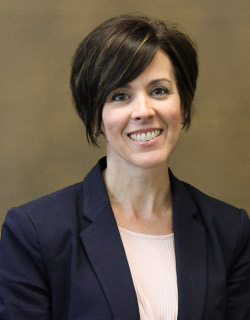Remotely Treating Cochlear Implant Patients
April 14, 2020
While telehealth is a simple tool for certain doctors’ appointments, it can be much more complicated for patients with specialized needs. The Presbyterian Board of Governors Cochlear Implant Center of Excellence at GBMC will begin using technology to provide hearing health to patients with cochlear implants virtually through a brand-new service called Remote Check. GBMC is one of only 20 centers in the United States and Canada that was chosen to participate in the initial market release.
Cochlear implants are devices that are surgically implanted into an ear that is no longer providing adequate speech understanding to the brain. When an individual is unable to receive speech understanding from a hearing aid, a cochlear implant is the next choice for improved hearing. This internal implant is powered by an external processor, worn on the ear or the side of the head, which takes sound and converts it to electrical impulses that travel up the hearing nerve. The brain interprets these signals and provides access to environmental sounds and speech by bypassing the damaged part of the ear.
Hearing is a very complex process and the implant will need to be activated and adjusted after surgery to ensure that it is functioning properly. Without a working processor, most patients have no access to sound at all – they are in a world of silence. Lack of communication negatively impacts all areas of health and it is imperative to keep the cochlear implant functioning in order for patients to remain connected to the world around them.
Prior to the release of Remote Check technology, there was no way to adjust the implant without patients physically being in the office. "Our clinic is eager to provide our patients with remote servicing opportunities, and we are excited to start using Cochlear's Remote Check offering," says Regina Presley, Au.D, FAAA, CCC/A, Senior Cochlear Implant Audiologist, “this innovative tool will have a tremendous benefit to ongoing patient care and service moving forward and, most importantly, right now during a time of distancing and telehealth services.”
Remote Check allows clinicians to virtually connect to certain cochlear implant models and assess the hearing needs of the patient, regardless of location. Patients can also send pictures of their implant site, complete questionnaires, and take various hearing tests to monitor their progress.
According to Dr. Presley, "many patients travel long distances for in-clinic care, need a caregiver to help them get to their appointments, and have competing school, personal and professional priorities. If we can provide at-home service options, we believe they will have a more positive healthcare experience overall. Every patient deserves timely, quality service to get the most from their hearing devices. Remote Check will ensure that patients receive the best care no matter where life and times like this take us."
*Click here for more information about the coronavirus (COVID-19)*




